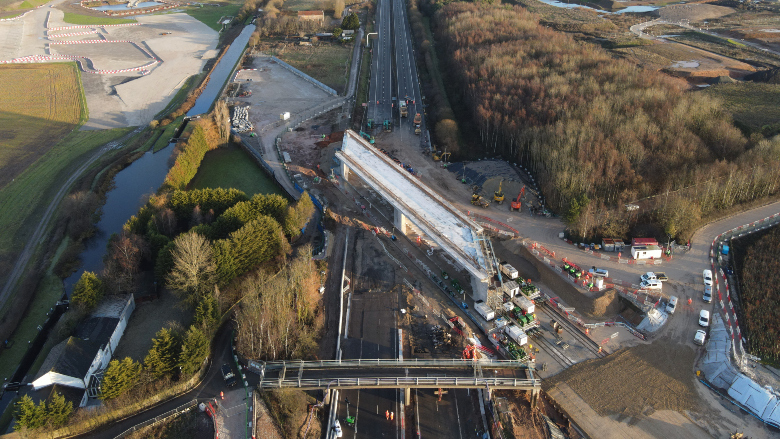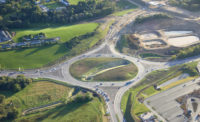Over 40 hours around Christmas day, a team of 450 workers slid a 13,890-ton section of high-speed railroad bridge about 540 ft over a major highway as part of the U.K.'s multi-billion-dollar London-Birmingham HS2 project.
It marked the end of year when $27 billion of work was in hand, including advances of half of the project’s 10 planned tunnel boring machines (TBMs).
To minimize traffic disruption on the busy M42 motorway, near Birmingham, the design-build joint venture Balfour Beatty VINCI built a 280-ft length of bridge on adjacent land and slid it onto awaiting abutments.
It was the world's longest slide of its type, says Sasan Ghavami, the joint venture's construction director. Designed for the joint venture by Mott McDonald and Systra, the structure was slid by subcontractor Freyssinet U.K., a VINCI subsidiary.
The joint venture is building the north section of the roughly 140-mile line in two contracts. Two other international teams have the remaining five design-build contracts covering the line’s central and south sections.
The bridge slide ended a "year of immense progress" on the project, according to Mark Thurston, HS2's CEO. Major civil engineering construction is underway at more than 360 sites while five TBMs have completed about 11 miles of drives.
The first two TBMs were launched at the Chiltern tunnels, about 25 miles from London, in May and June 2021. Another pair of TBMs started this October on their twin drives from West Ruislip to central London, some 5 miles away.
Meanwhile, in November, a fifth machine started on its second drive of twin tunnels under Long Itchington Wood, around 80 miles from London, having completed its one mile parallel drive this July.





Post a comment to this article
Report Abusive Comment